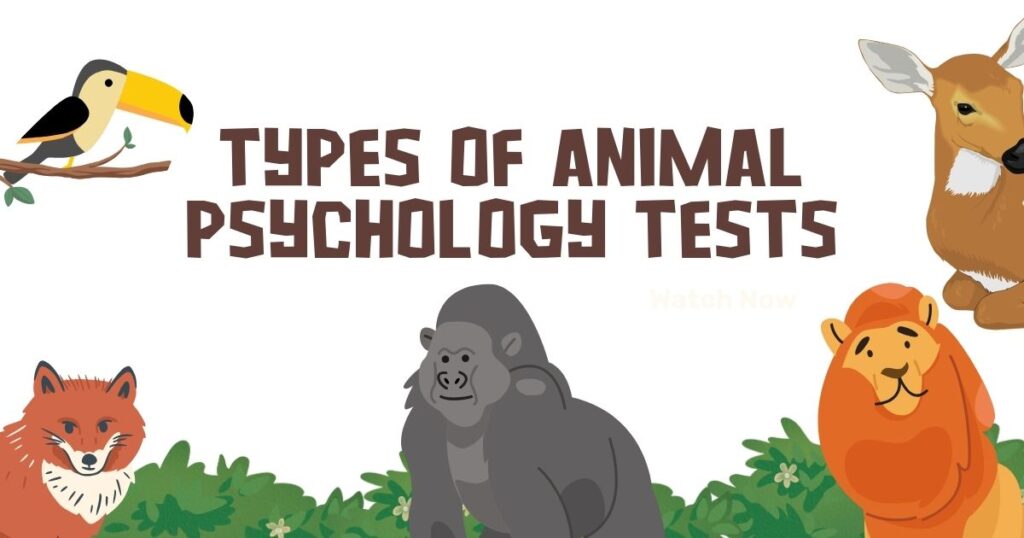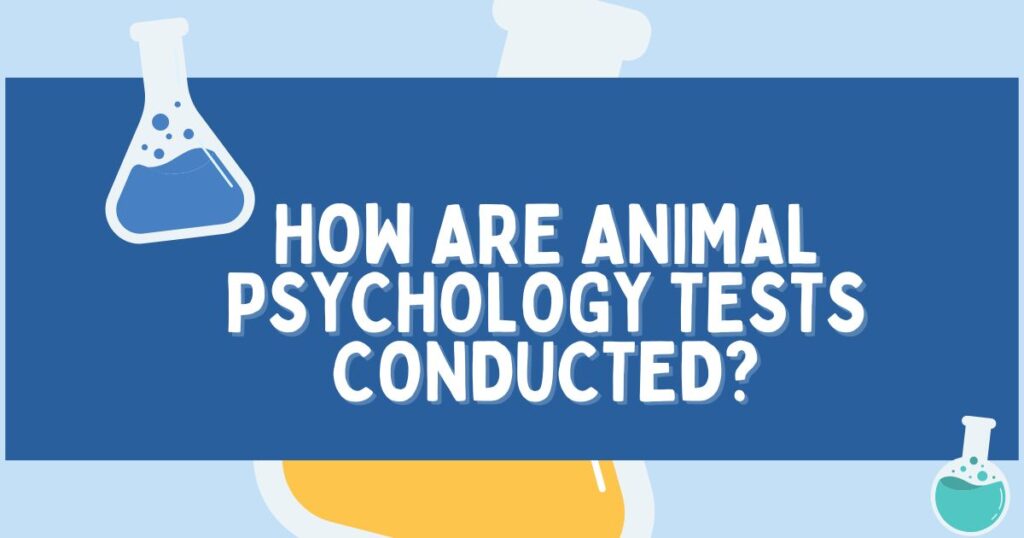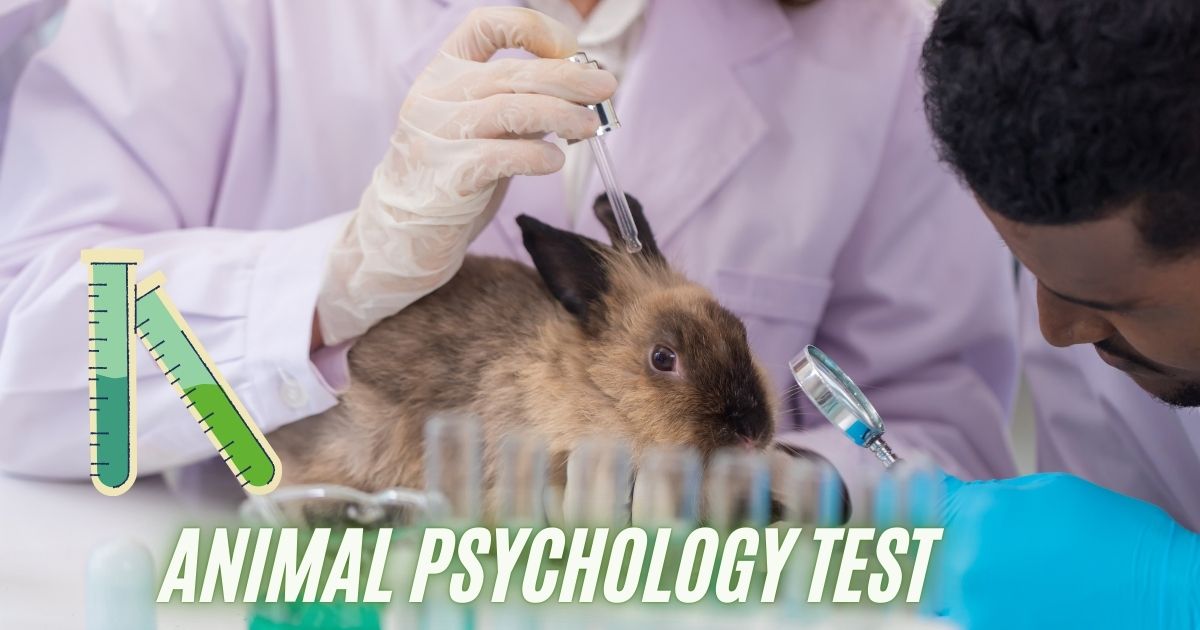Introduction
Animal psychology tests are basic tools for understanding how animals think, feel, and behave. By using psychology tests designed mainly for animals, researchers, veterinarians, and animal psychologists can study more about animal feelings, choice-making, and trouble-fixing talents. In this article, I’ll discover what animal psychology tests are, the styles of tests available, and the way they benefit animal welfare.
Key Takeaways
- Animal Psychology Tests: Used to understand animal behavior, emotions, and cognition.
- Types of tests: include behavioural, cognitive, emotional, and social interaction tests.
- Benefits: Improves welfare, supports training, advances research, aids veterinary care.
- Ethical Considerations: Tests must be non-invasive, stress-free, and follow ethical guidelines.
- New Advances: AI, wearable sensors, and virtual environments enhance test accuracy insights.
What Is an Animal Psychology Test?
An animal psychology quiz is a strategy utilized to watch and consider animal behavior, cognition, and feelings. These tests are designed to reveal information about how animals think and react to different situations. The results help animal specialists make strides in animal welfare, preparing programs, and even veterinary practices.
Types of Animal Psychology Tests

Types of Animal Psychology Tests
Animal psychology tests come in different sorts, each focusing on distinctive aspects of behavior. Here are a few of the most common ones:
1. Behavioral Tests
Behavioral tests measure an animal’s responses in certain situations. For example, a dog might experience a behavioral appraisal to decide how it responds to outsiders or loud noises. These tests offer assistance in recognizing stress triggers or signs of aggression.
2. Cognitive Tests
Cognitive tests evaluate an animal’s capacity to learn, solve problems, and remember. For example, a maze test for rats or mice helps analysts study how well the animals can learn the format of a labyrinth over time. Cognitive tests are valuable for understanding an animal’s intelligence level and adaptability.
3. Emotional Response Tests
These tests evaluate an animal’s emotional responses to different situations. For instance, a stretch test might show how an animal responds to being left alone or exposed to new situations. Emotional tests are supportive for surveying animal welfare, particularly in pets and animals in captivity.
4. Social Interaction Tests
Social interaction tests focus on how animals behave around other animals or humans. A common test for this is the play behavior test in dogs, where researchers observe how a dog plays with others. This test helps in understanding social skills and compatibility with other animals or humans.
Why Animal Psychology Tests Matter
Animal psychology tests are vital for numerous motives:
- Improving Animal Welfare: These tests assist in perceiving symptoms of pressure, tension, or aggression. These facts permit caretakers and owners to offer higher care and improve the animal’s first-rate existence.
- Advancing Research: For researchers, animal psychology tests provide insights into how animals procedure statistics, which can occasionally inform human psychology studies too.
- Enhancing Training Techniques: Animal trainers use psychology exams to recognize how animals reply to schooling, which allows for developing mice reinforcement techniques.
- Supporting Veterinary Care: Vets can use psychology assessments to diagnose behavioral problems, making it less difficult to deal with situations like separation anxiety in pets.
How Are Animal Psychology Tests Conducted?

How Are Animal Psychology Tests Conducted?
Animal psychology exams are often designed to be non-invasive and stress-unfastened. Here’s a basic outline of ways those assessments are typically conducted:
- Preparation: The surroundings are installed to make the animal experience cushy. For example, in a lab, animals might be given time to explore the trying-out place before beginning the test.
- Observation: Experts have a look at the animal’s responses, inclusive of frame language, vocalizations, and movement patterns.
- Data Collection: Detailed notes and recordings are taken to analyze the animal’s reactions over time.
- Interpretation: The data is reviewed to understand the animal’s behavior, emotions, or cognitive abilities.
Animal psychology tests require trained professionals to interpret the data accurately. Incorrect interpretation can lead to misunderstandings about an animal’s behavior.
Challenges and Ethical Concerns in Animal Psychology Testing
| Challenge/Ethical Concern |
Description |
| Animal Stress |
Animals may experience stress or anxiety, especially in unfamiliar settings. Reducing stress is essential. |
| Interpretation Accuracy |
Interpreting behavior without verbal communication can lead to misinterpretations of emotions or thoughts. |
| Ethical Guidelines |
Strict guidelines ensure humane treatment and ethical standards in animal testing across many countries. |
There are a few challenges and moral considerations when conducting animal psychology tests:
- Animal Stress: A few creatures may feel stressed or anxious during tests, particularly if the environment is unfamiliar. Reducing stress is vital for precise results and ethical standards.
- Interpretation Accuracy: Since animals cannot talk, analysts depend on behavior to interpret feelings and considerations, which can sometimes lead to misinterpretation.
- Ethical Guidelines: Ensuring humane treatment and moral benchmarks is basic. Numerous nations have strict guidelines to ensure animals during psychological testing.
Recent Advances in Animal Psychology Testing
Recent advancements have improved the field of animal psychology testing:
- AI and Machine Learning: With AI technology, analysts can presently track animal behavior designs over time, which helps in recognizing subtle changes that might not be visible to the human eye.
- Wearable Sensors: Sensors on collars or harnesses track heart rate, development, and other markers of stress or relaxation, giving analysts extra information to work with.
- Virtual Testing Environments: In a few cases, virtual reality is utilized to simulate environments or situations, providing a controlled setting to watch animal behavior.
These advancements make animal psychology tests more accurate and informative, helping experts make better decisions in animal welfare and research.
Conclusion
Animal psychology tests are a profitable tool for understanding animals on a more profound level. By carefully examining animal behavior, feelings, and cognitive capacities, these tests support improved animal care, preparation, and welfare. With progressing advancements in technology, animal psychology tests will play a significant part in both research and animal well-being.
FAQs For Animal Psychology Test
Are animal psychology tests safe?
Yes, creature psychology tests are outlined to be secure and non-invasive, with a focus on minimizing the push for the animal.
Can animal psychology tests be used for pets?
Absolutely. Numerous pet proprietors and veterinarians utilize behavioral and emotional tests to get pets better and improve their care.
Do animal psychology tests have limitations?
Yes, interpreting animal behaviour can sometimes be challenging, and results depend on the animal’s comfort in the testing environment.
How do animal psychology tests benefit humans?
These tests improve animal training methods and may even offer insights into human psychology, especially regarding emotional and social behaviors.




Nice post. I learn something more challenging on different blogs everyday. It will always be stimulating to read content from other writers and practice a little something from their store. I’d prefer to use some with the content on my blog whether you don’t mind. Natually I’ll give you a link on your web blog. Thanks for sharing.
Thanks for the kind words! I’m glad you like the website. If you have any ideas for improvement, feel free to share!
Did you know that you can buy Viagra, Cialis without a prescription? If you’re experiencing erectile dysfunction symptoms you can now order Viagra, Cialis.
You can request Viagra online quickly and easily without a previous diagnosis or prescription.
Viagra is the most popular tablet for erectile dysfunction. Viagra helps you get an erection by increasing the blood flow to your penis, starts working within 30 minutes, and is effective for 74% of men.
An erectile dysfunction treatment which can be bought without a prescription for men aged 18 and over with erectile dysfunction (ED). The treatment works in 25 minutes and lasts up to 4 hours.
https://cutt.ly/KeJfSjzV